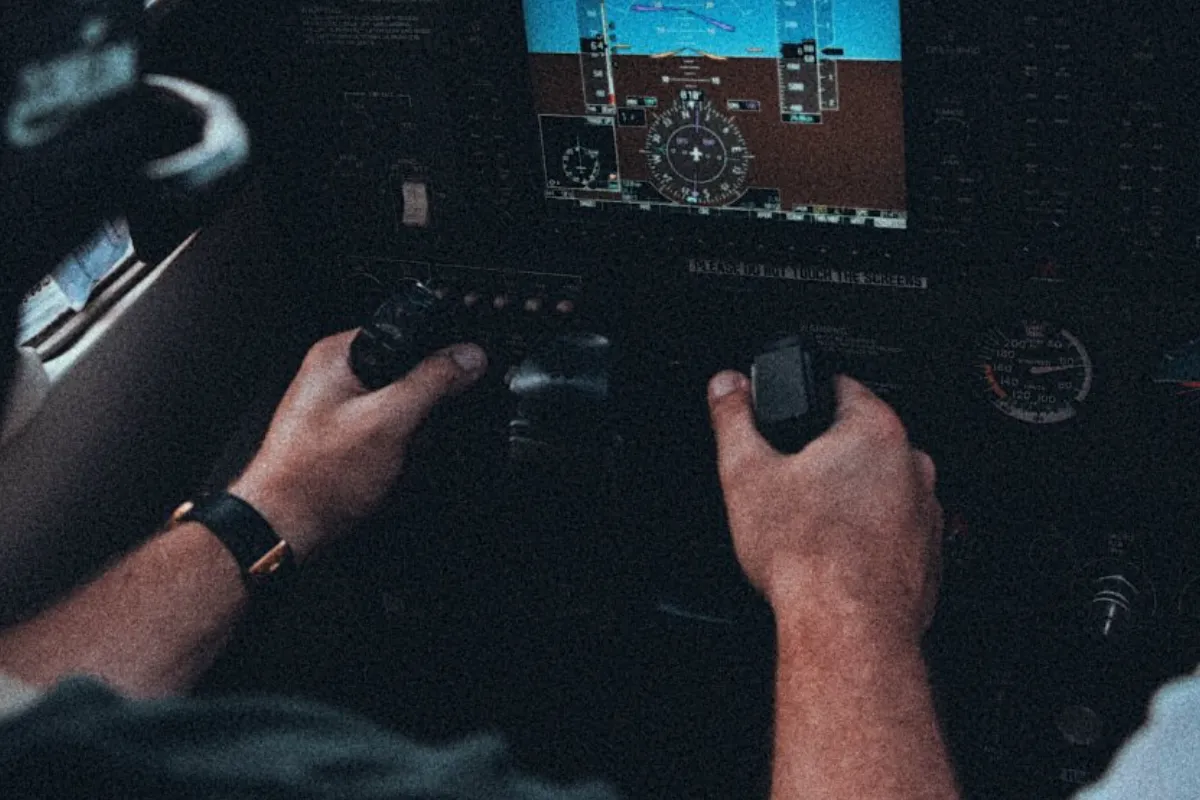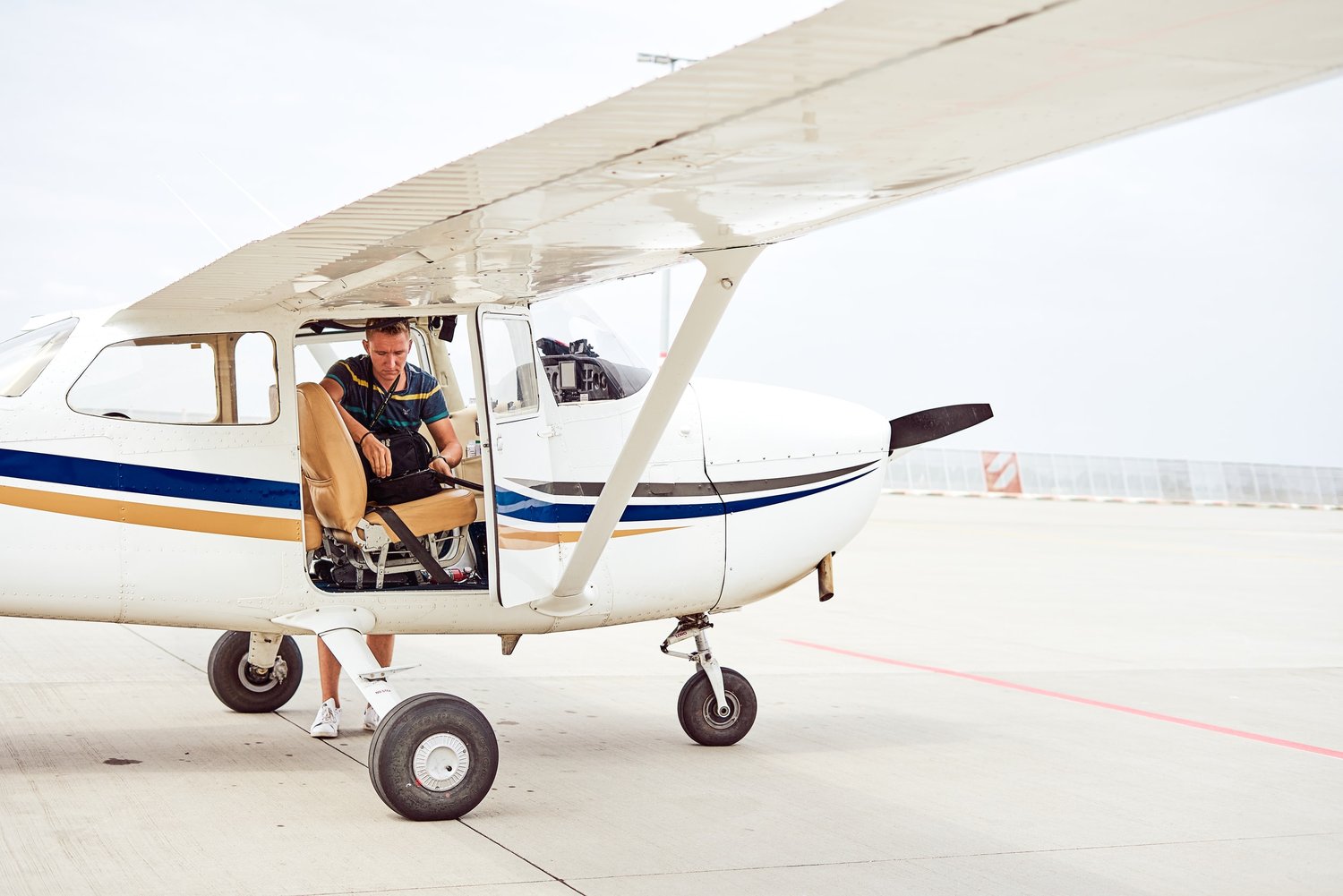Innovative Ideas and Strategies for Aeronautical Success
Aviation Career

Why you might fail your checkride
Three Reasons You Might Fail Your Checkride
Reason#1: You don’t care
Wait, you don't care? How could someone not care about their checkride? As with most situations, some variables apply. Every pilot has their own set of goals and aspirations. Here are some possibilities that may cause you to fail to become a pilot and why it is essential to pass on the first time.
Risk = Motivation

Steaks Stakes
Generally speaking, high stakes increase motivation. Pilots who have more stakes in the game tend to spend more than the necessary time required to prepare to perform to the standards of a checkride. Each person has a different dollar value; the easier money comes, the less the applicant stresses about passing their checkride. Each time a person purchases an aircraft for private use, there is an underlying story of how they came to do so. We find that the folks who have rags to riches stories tend to do better on the first attempt as long as they are not distracted by running their business.

Easy Come Easy Go
A person who has inherited their family's multi-billion-dollar business will eventually get bored of fancy cars and traveling first class. The natural course of evolution will lead them to buy an aircraft; it looks pretty and will - without a doubt - impress their network. (especially if they travel via helicopter). Some of these buyers take it a step further and learn how to pilot their new aircraft themselves! Often, they are still very involved in their day-to-day operations, and this can cause interference with the dedication required to understand the micro-details of a complete training syllabus thoroughly.

The
Bootstrapper
Some people work incredibly hard for their money. An entrepreneur who has labored for every dollar they have earned may one day purchase an economic plane or helicopter so that they may use it as a commuter, fly for enjoyment, or take their family on special trips. These types of owner-operators will most often spend the necessary time and energy in preparation to pass their checkride because they don't want to wreck their lifelong dream of flying.

The Time-Builder
The majority of pilots who want a life-long career in aviation as a pilot have a long road ahead of them. The companies that pay enough to support an average lifestyle fly large aircraft with high-profit margins. To qualify for those aircraft pilot positions, one must possess a thousand or several thousand flight hours. When first starting, a career-minded pilot may perceive the tiny training aircraft as a temporary stepping stone and never dedicate fully to learning the airframe or the surrounding training environment. The operational nature of the industry is mostly at fault by valuing time over legitimate experience, but that is a separate topic altogether. As seen above in the Rich guy and Bootstrapper examples, students who tend to do better are the ones who have a sizeable financial stake in the cost of their training.

They can sense red flags
A Designated Pilot Examiner (DPE) is the FAA representative responsible for conducting checkrides and issuing pilot certificates. They can sense a pilot's concern for proper methodology and due diligence. An examiner may get a little gut feeling akin to a person on a mismatched first date. You may not know why you don't want to give this potential mate a second chance, but your gut feeling will scream at you, "Red flags, don't do it"!
An examiner gets this vibe when a student exhibits behavior that proves that they may tend to graze over the material, commit critical information to short-term memory, or skimp on pre-flight due diligence preparations. Small micro-expressions can be interpreted unconsciously by the examiner. If they don't feel like your heart is in it, it is a sure bet that the examiner will not want to take the risk of attaching their good name to the risky nature of your future flying.
So how to I combat don’t-care-itis?
The answer is quite simple. Train like you fly and fly like you train! Act as if your life depends on it because IT DOES! Hitting head-first into a wall faster than a brisk walk is deadly! You had better be prepared because soaring through obstacle-rich environments at unsurvivable speeds while wrapped in a plastic tube is guaranteed death. Human error accounts for most accidents, but didn't humans invent aircraft? By default, that would make 100% of accidents human error. Inspect the machine, environment, and the entire training syllabus as if your life depends on it because it most certainly does - this is not a figure of speech.
Be fully prepared so you can alleviate your examiner's concerns by addressing the elephant in the room. First, explain your situation. Casually let the examiner know that you care very much about doing your very best. You can chat about how the perception of your case may commonly be viewed as risky. Say something like, "I know that typically career pilots are viewed as 'time-builders,' but I want you to know that I truly enjoy the process of learning and building experience. Flying is the best decision I have made, and I want you to know that I'm here to build experience, not just flight time."
Sport your "Train like you fly, fly like your train" shirt to support your claim further. (Just kidding, you should be dressed business casual for your checkride).

Size:
Select Size XSSMLXL2XL3XL4XL5XL
Quantity:
Add To Cart
Reason # 2: You don’t know what you don’t know
Some instructors train their students only to pass the checkride and not to become good pilots! All humans will naturally take the path of least resistance, and flight instructors are not immune to this reality. We are hardwired for failure because adequately training for an exam takes real work, time, and money - lots and lots of money. The mountain of data required to understand is often trimmed down to the essentials necessary to pass the exam, and some examiners will find weaknesses in this process. Immerse yourself in this podcast for a deeper dive into the psychology of this phenomenon.
The solution?
Easy, seek out an instructor who is willing to comb through the finest details of a complete training syllabus with you. Spare no expense learning and understanding all details, even if you think they don't apply to you. If you want to become a pilot, you must dig deep into the material. Systems, weather, aerodynamics, and regulations are your world, so settle in and enjoy the process. You must be able to orally and physically demonstrate all areas of being a pilot, even if you can afford to pay someone to pull your aircraft out and preflight it for you.
Reason # 3 You have a lack of exposure to scenarios
There is a reason that there are minimum experience requirements to meet the qualifications of a pilot certificate. The main reason for having adequate time in the air and on the ground is to have a good sampling of common failure points. A good flight instructor will adequately expose you to these scenarios and assess your ability or inability to handle the issues. Then, they will place additional emphasis on the weak points. One common problem with this process is that if you require more time than the average trainee to comprehend specific tasks, your instructor will spend extra time on those weaknesses. Doing so will have a chain reaction, and the ripples can be noticed during your checkride by the examiner.
The FAA could easily combat this by mandating scenarios into the syllabus of the most common reasons why pilots crash. It would cost less than one accident for them to create a software system that would track the quality of training of said tasks; however, they are not financially motivated by the crashes. The change will probably not happen until the private sector builds such a standardized training system, so it is up to YOU, the student, to expose yourself to as many situations as possible.
If your instructor is a low-time instructor (the odds are high), it is because of the nature of the industry. The most inexperienced pilots are the majority. It is possible that they are time-builders and not dedicated to the art of teaching, as it is a stepping stone career path to higher-paying gigs. Check out this podcast to dive deeper into better ways to combat learning from those who don't want to teach.
So how do I learn what I need if my instructor can’t or won’t expose me to the scenarios needed for the checkride?
The Solution?
There are ample ways to collect data, and the good news is that there are virtually no new ways that people crash aircraft invented in the past ten years. There are several books like Fatal Traps and The Killing Zone.
You can also dive into the rabbit hole of social media pilot groups; however, beware, social media combined with aviation can be addicting. Proceed at your own risk, and please know that there are folks in those groups who deliberately do others harm by providing misinformation because it feeds their dopamine addiction that social media addiction software engineers created through randomized recognition rewards.
Speak with as many pilots and instructors as you can. A great way to do this is to attend conferences such as the Heli-Expo, RTAG, the FAA Safety Conference, NBAA, or Oshkosh.

It is important that you pass your checkride on the first attempt. Failures on your record can be a severe thorn in your side in the future because it never goes away. You will have to explain yourself in interviews, potentially pay higher insurance rates, or lose a court case in an incident.
Remember that many instructors out there LOVE to teach, and you must seek them out. If you have exhausted all of the methods listed above and would like an Avic Air instructor to give you some solid checkride prep, we have an online tutoring class available.
STAY BRIEFED
Sign up to be the first to find out when something new lands:
-Events
-Articles
-Podcast
-Courses
Large Call to Action Headline
A-V-I-C stands for Aviation Intelligence Community. Our mission is to improve the quality of life for aviators through shared experience. Be sure to join us on the social media sites @avicair, we love sharing ideas, experience, and intelligence to propel our industry forward.



Facebook
Instagram
X
LinkedIn
Youtube